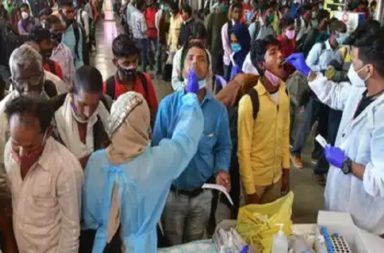The COVID-19 pandemic is affecting all globally but not everyone is affected equally. Recently, on World Population Day, Secretary-General António Guterres emphasized that amid coronavirus the burden on health systems has increased and sexual and reproductive health of women and girls is being neglected which is a matter of deep concern. He urged countries to safeguard sexual and reproductive health care, protect the health and rights of women and girls, and end gender-based violence.
The UN Secretary-General further added that the coronavirus pandemic has made our challenges even bigger and denser. It is deepening existing inequalities and vulnerabilities, particularly for women and girls. “We cannot allow the pandemic to reverse the progress we have made towards these goals”, stressed UN Chief.
Sexual & reproductive health is a crucial public health issue that demands urgent investment.
All women & girls must have access to sexual & reproductive health services, including maternal health & access to safe birth. #WorldPopulationDay
? https://t.co/YMiCKnrxDM pic.twitter.com/PkSLkEnwJj
— UNFPAasia (@UNFPAasia) July 10, 2020
Meanwhile, the United Nations Population Fund projects that if lockdown measures continue for another six months with major disruptions to health services, it will directly affect the reproductive health services of 47 million women in low- and middle-income countries. This would result in seven million unintended pregnancies. Moreover, some 31 million additional cases of gender-based violence can also be expected.
“Every year, millions of girls are subjected to practices that harm them physically and emotionally, robbing them of their right to reach their full potential. According to the State of World Population 2020, released by United Nations Populations Fund, more than 4 million girls will be subjected to female genital mutilation and 12 million forced to marry this year. Lockdowns stemming from the pandemic are expected to make matters even worse”, the UN chief added.
Executive Director of the UN sexual and reproductive health agency, Natalia Kanem, said that women have the right to decide whether they want to become pregnant or not, or when and how often they want to conceive. More than 200 million women and girls want to delay or prevent pregnancy but don’t have the means”, noted Dr Kanem. Women and girls are dying due to unwanted pregnancies, unsafe abortions, and embarrassment faced by pregnant girls in schools.





